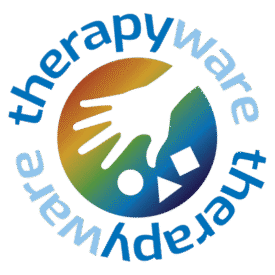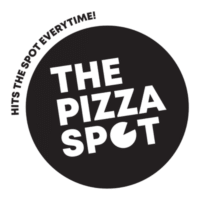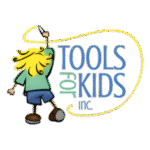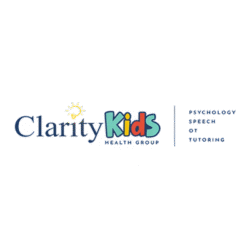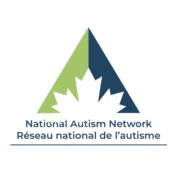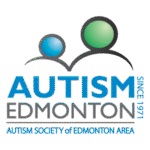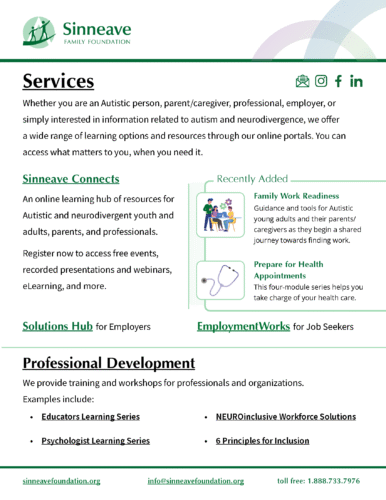7:30am – 9:00am
Schedule
Breakfast & Registration
9:00am – 10:30am
Opening Remarks & Keynote
CLARA HUGHES – Opening Minds: Clara Hughes on Mental Health, Stigma, and Strength
10:30am – 10:45am
Break
10:45am – 12:15pm
KRISTIN LIGHT – Living Happily Ever Average: Shining a Light on Kristin’s Journey Through Mental Health
12:15pm – 1:15pm
Lunch
1:15pm – 2:30pm
MADDY DEVER – Neurodivergent and Thriving: Weaving Lived Experience and Acceptance into Practice
2:30pm – 3:00pm
Break
Concurrent Sessions
3:00pm – 4:30pm
GRANT BRUNO – Where Culture Meets Community: Reclaiming Indigenous Understandings of Neurodiversity in the Classroom
CHRISTINE JENKINS – Older not Wiser? Insights on Autistic Aging and Flourishing
4:30pm
Closing Remarks
Speakers' Bios, Sessions Info & Resources
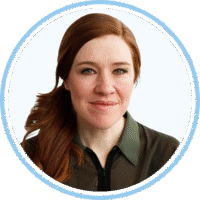
Session Description
From one of Canada’s most decorated Olympians comes a raw but life-affirming story of one woman’s struggle with depression.
In 2006, when Clara Hughes stepped onto the Olympic podium in Torino, Italy, she became the first and only athlete ever to win multiple medals in both Summer and Winter Games. Four years later, she was proud to carry the Canadian flag for Team Canada in the opening ceremony of the Vancouver Olympic Winter Games. But there’s another story behind her celebrated career as an athlete, behind her signature smile.
After her first Olympics in the grueling world of competitive endurance sport that stripped away her confidence and bruised her body, Hughes began to realize that her physical extremes, her emotional setbacks, and her partying habits were masking a severe depression. The relentless pursuit of excellence in sport was put on hold in order to heal. When she did eventually return to competition, the healing path became an integral part of her athletic success. After winning bronze in the last speed skating race of her career, she decided to retire, and has since emerged as one of our most committed humanitarians, advocating for a variety of social causes both in Canada and around the world.
Told with honesty and passion, Clara Hughes’ shared her personal journey through physical and mental pain to a life where love and understanding can thrive. Throughout it all, connection was the ultimate reward. Whether on the Olympic stage, hiking long-distance trails around the world, or within the stillness on the healing path, deep connection with place, space, self, and others is her ultimate focus. Her revelatory and inspiring story will touch the hearts of all Canadians.
Bio
Six-Time Olympic Medalist | Mental Health Advocate
Connection fuels Clara Hughes. Whether on the Olympic stage, hiking long-distance trails around the world, within the stillness on the healing path, or speaking in front of thousands of people, deep connection with place, space, self, and others is her ultimate focus. In her intimate keynotes, Hughes explores the power of movement to change lives. She candidly shares her experience living with depression to inspire audiences to face their fears, find their voice, and become the champions they’re meant to be.
Hughes is the only athlete in Olympic history to win multiple medals in both summer and winter Games, representing Canada in both speed skating and cycling. In addition, she served as Team Canada’s flag-bearer at the 2010 Vancouver Olympic Games.
As the founding spokesperson for Bell Let’s Talk, a campaign designed to end the stigma attached to mental illness, Hughes helped jumpstart the conversation on mental health in Canada. She believes in the power of story to enact change and that each person has one to share. The opportunity to share her own has taught her how to listen deeply to others. Allowing another to be seen, heard, and believed is a powerful space she brings to every event. This connection has been made countless times after her poignant talks.
Over the course of her distinguished career, Hughes has won countless awards and accolades. She was awarded the International Olympic Committee’s Sport and Community Trophy, honoured with a star on Canada’s Walk of Fame, inducted into Canada’s Sports Hall of Fame, and named a member of the Order of Manitoba and an Officer of the Order of Canada. In 2022, she was named an Olympian for Life in recognition of her making the world a better place by promoting the Olympic Values at every stage of her life.
In her effort to lead a life in motion, Hughes has completed the “Triple Crown” of long-distance hiking — the Pacific Crest Trail, the Continental Divide Trail, and the Appalachian Trail — and continues to this day, to find deep meaning in outdoor adventure pursuits. Hughes shares her powerful story in her bestselling memoir, Open Heart, Open Mind.
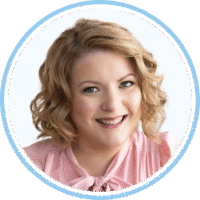
Session Description
We love a good comeback story, don’t we? The feel-good fairytale where the downtrodden underdog overcomes adversity to return stronger, shinier, and somehow better than before; with their hard-won lessons earning them the promise of living happily ever after. It’s a tidy trope… but is that how resilience really works?
In this honest, humorous, and quietly radical keynote, award-winning mental health speaker (and psych ward regular) Kristin Light draws on classic literary tropes and jazz-age flair to demystify both recovery and survival; unpacking old myths of single-journey resilience while reframing our measure of achievement from the lofty end goal to instead the very act of pressing on. A theatrical entertainer, Kristin weaves her candid story of persistent survival through engaging research, surprising overlaps, and just the right dose of dark comedy to paint an aspiringly beautiful portrait of life in the statistical middle.
This is not a story about overcoming; it’s a story about continuing — undercoming, if you will — and the surprising power and community in finding comfort in our everyday average. Audiences have left this session deeply moved, yet contently grounded: with a deeper understanding of mental health, a fresh lens on resilience, and a renewed appreciation for the people quietly fighting battles they rarely speak aloud.
Not everyone will find that elusive happy ending. But we all deserve a shot at finding contentment, no matter how many chapters we face along the way.
Resources
Living Happily Ever Average: Shining a Light on Kristin’s Journey Through Mental Health
Bio
Kristin Light brings her dynamic expertise as a senior engagement and accessibility strategist, tenacious advocate, and captivating storyteller to every stage she graces.
Multiply neurodivergent with a flair for turning real-life challenges into tangible insights, Kristin weaves cutting-edge research with candid stories, sharp strategy, and conscientious guidance — making complex ideas refreshingly relatable and driving meaningful change worth raving about.
A vibrant and unique corporate experience facilitator, Kristin taps into both her performance background and the nostalgic LEGO™ Serious Play methodology to create innovative and immersive experiences that have been met with stellar reviews from participants and executives alike.
Recently, Kristin channeled both her professional and lived experience to manage a federal grant (received through the Canadian Association for Supported Employment’s Innovation Lab program) to build neuroinclusive suicide prevention strategies for Canada’s rail construction sector.
Kristin is a proud Board Member with DiverseMinds, an organization dedicated to supporting neurodivergent women and girls; certified in ASIST (Applied Suicide Intervention Skills); a trained Mental Health First Aider; and a graduate of the University of New Brunswick’s Psychologically Safe Leadership program. Her work has been featured in both news media and industry blogs, and she has co-authored two highly acclaimed books on mental health and neurodiversity.
With her signature blend of theatrical humour, nostalgic charm, and executive-level insight, Kristin delivers engaging, impactful sessions that will resonate long after the workshop ends.
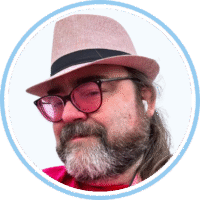
Bio
Maddy Dever (they/them) is a non-binary Autistic adult and parent of four who are all also Autistic, living in Smiths Falls in rural Eastern Ontario. Maddy advocates with both provincial and federal governments for inclusion and acceptance of Autistic individuals and for Autistic people to have their own voice in policy decisions. Maddy has been an advocate for change in education, affordable and accessible housing, as well as moving disability supports rates out of poverty levels.
Maddy is President of Autistic Bridge Inc., an Autistic-led organization fostering connections between Autistics, their families and those who support them, and a leader in the National Disability Strategy movement to build a nation-wide coalition of disability organizations to advocate for meeting all needs of all disabilities at all ages. They are the Interim Chair of the new National Autism Network, and former Vice-Chair and current member of the Board of directors of Autism Alliance of Canada (AAC formerly known as CASDA), where they are helping with aspects of developing a National Autism Strategy.
Resources
Neurodivergent and Thriving: Weaving Lived Experience and Acceptance into Practice
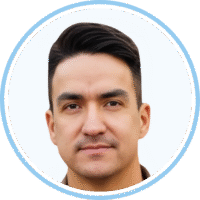
Resources
Bio
Grant Bruno is nêhiyaw (Plains Cree), a registered member of Samson Cree Nation and an assistant professor in the Department of Pediatrics at the U of A. With a background rooted in nêhiyaw understandings of health, his work focuses on creating culturally responsive healthcare models that support Indigenous children and youth, particularly in the areas of neurodiversity and intellectual disability. As a proud First Nations scholar, his research weaves nêhiyaw knowledge systems and Western frameworks to create inclusive, decolonized approaches to healthcare. He is currently the Academic Lead Indigenous Child Health for the Women and Children’s Health Research Institute (WCHRI) and is the founder of the Ispimihk Awâsisak (Sky Children) Program and the Indigenous Caregiving Collective.
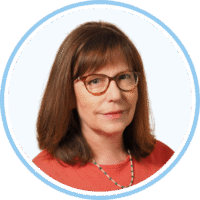
Session Description
Older not Wiser?: Insights on Autistic aging and flourishing Autistic adults are aging, but are they aging well? Many are being identified late in life. What do we know about how they fare best? What questions still need to be answered about Autistic aging? How is the emphasis on children and youth working against #AutisticElders and lifespan issues? If you decide not to have children, are you less likely to ever be discovered (so many parents, even grandparents are referred, typically when a boy child is assessed.) See Aging across the Autism Spectrum by Stewart and Happé, August 2025.
Resources
Older not Wiser? Insight on Autistic Aging and Flourishing
Bio
Christine A. Jenkins (she/her) is a late-in-life identified ADHD and diagnosed Autistic cis white woman who has been an advocate since 2012 and a co-researcher since 2018. She mentors other emerging career researchers.
The collision of perimenopause and sensory overload led to her assessment for autism at age 48. The growing awareness of and allowance for this intersection initially caused grief and confusion, then led to validation and self acceptance.
Christine’s lived expertise is valuable. She speaks in Canada and internationally on Autistic aging, late diagnosis (45+), menopause, and male gender bias. Christine is a published author with chapters in several books, and papers in NAS Autism, International Journal of Disability and Social Justice, and Autism in Adulthood, on whose editorial board she serves. “My aim is to help include Autistic voices at every stage in true co-production of research.”
Schedule
7:30am – 9:00am
Breakfast & Registration
9:00am – 10:30am
Opening Remarks & Keynote
EVDOKIA ANAGNOSTOU – Supporting Educators with Research Based Insight
10:30am – 11:00am
Break
11:00am – 12:30pm
WHITNEY HODGINS – Where Real Intervention Happens: Rethinking Education for Autistic Students
12:30pm – 1:30pm
Lunch
Concurrent Sessions
1:30pm – 3:00pm
DEEPA SINGAL – Evidence That Matters: Research to Support Autistic Voices
JONATHAN WEISS – The Overlooked Connection: Innovative Approaches to Mental Health and Autism
CHRISTINE JENKINS – Not Just About the Boys! Male Gender Bias in Autism
3:00pm – 3:30pm
Break
Concurrent Sessions
3:30pm – 4:45pm
CAROLE ANNE HAPCHYN – The Power of Connection: Using NRF to Support Regulation and Growth
GINA PAYNE, DAN DYCK & MATT PEARCEY – Money Toolkit for Autistic Families: Finding, Keeping, and Stretching Every Dollar
4:45pm
Closing Remarks
Speakers' Bios, Sessions Info & Resources
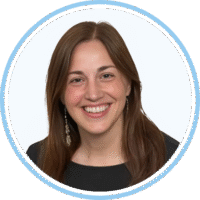
Bio
Dr. Evdokia Anagnostou is a Child Neurologist and Professor of Pediatrics at the University of Toronto and Vice President of Holland Bloorview’s Research Institute. As a Senior Clinician Scientist, she co-leads the Autism Research Centre (ARC) at Holland Bloorview and University of Toronto. She holds the Canada Research Chair in Translational therapeutics in Autism Spectrum Disorder (ASD) and the Dr. Stuart D. Sims Chair in Autism at Holland Bloorview. Most recently she has been elected as a fellow of the Canadian Academy of Health Sciences.
Dr. Anagnostou has received extensive international funding to understand the underlying biological differences associated with ASD and other neurodevelopmental differences, translate such understandings into potential novel interventions. She is also funding health system innovation, stakeholder engagement, and in understanding the meaning and impact of ASD in marginalized populations. She serves on multiple government committees on improving diagnostic and intervention pathways, and several editorial boards and grant review panels. She has also been recognized for her contributions to training young clinicians and scientists and for her commitment to women in STEM. She currently represents the region of America- North on the INSAR Global Senior Leaders committee.
Resources
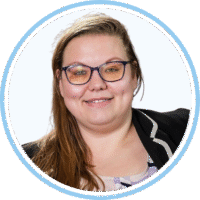
Session Description
Professional biases exist everywhere. In this session participants will be guided through what they believe the perfect student will be followed by the stereotypes of the autistic student and what the impacts to the student will be. Following this discussion participants will learn about what solutions work when working with students that are neuro-affirming and covers all ranges of the spectrum while still meeting outcomes. They are budget friendly, and bust through the misconceptions about teaching autistic individuals from an autistic educator.
Resources
Where Real Intervention Happens: Rethinking Education for Autistic Students
Bio
Whitney Hodgins is a Grade 5/6 teacher from Waskada School in Southwest Horizon School Division in Manitoba, Canada. She holds a Bachelor of Education degree as well as a Bachelor of Arts double majoring in Anthropology & History from Brandon University. In addition to this, Whitney is heavily involved in disability and mental health advocacy since age 16. In 2022, Whitney was named the inaugural Jim and Ginette Munson Autism Leadership Award recipient making her a nationally recognized voice who speaks about autism and disability issues. In March 2025, she became a King Charles III Coronation Medalist for dedicating 15 years to autism acceptance and inclusion and bringing credit to her region and to Canada. Most recently she presented at the 1 in 31 Connection Autism Summit where she spoke internationally for the first time about autism acceptance and educational leadership. When Whitney is not being an advocate or teacher, she likes to spend time playing video-games, reading, or practicing her photography skills.

Bio
Deepa Singal (PhD) is the Scientific Director of Autism Alliance of Canada where she provides strategic and scientific leadership, working at the intersection of research and policy. Dr. Singal has a Ph.D. in Community Health Sciences from the University of Manitoba and Executive Education in Public Policy at the Kennedy School of Government at Harvard, and a decade of experience in academia, government, and the not-for-profit landscape. Her expertise in quantitative child and maternal health research and public policy drives her leadership in pan-Canadian, multidisciplinary initiatives. Dr. Singal’s mission focuses on generating community-driven evidence to shape national-level policy, advocating for the full inclusion of neurodivergent people in Canadian society.
Resources
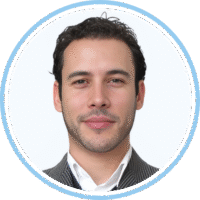
Session Description
This session explores the intersection of mental health and autism, highlighting how positive mental health is more than the absence of problems; it’s about thriving and flourishing. Drawing on recent research, Dr. Weiss discusses the unique challenges faced by autistic youth and those with intellectual disabilities, emphasizing the importance of context, resilience, and meaningful participation. The session offers practical insights for supporting youth to live their best lives, focusing on strengths, relationships, and community inclusion.
Resources
The Overlooked Connection: Innovative Approaches to Mental Health and Autism
Bio
Jonathan A. Weiss, PhD (York University), is an affiliate scientist at the Azrieli Adult Neurodevelopmental Centre at the Centre for Addiction and Mental Health (CAMH), a professor in the Department of Psychology at York University, and a clinical psychologist. He completed a pre-doctoral internship at Surrey Place Centre (Toronto) and a post-doctoral fellowship in the Dual Diagnosis Program at the Centre for Addiction and Mental Health and was a fellow in the Department of Psychiatry at the University of Toronto.
Areas of Research:
Dr. Weiss’s research focuses on mental health in autistic people or people with intellectual disabilities across the lifespan. He conducts studies into how people with developmental disabilities access mental health care, and is interested in their service needs, use, and experiences. His work is also focused on understanding and supporting family wellness when at least one family member has a developmental disability. He is interested in program development and evaluation, and in particular on the impact of Special Olympics on the psychological well-being of participants, and of psychosocial interventions to promote resilience and improve the mental health of children and adults with developmental disabilities.

Session Description
Not Just about the Boys! Male gender bias in autism research Diagnostic criteria and supports have focused on boys and young men, to the detriment of women, girls, marginalized, and gender diverse persons. How do we call out and address this gender bias in autism, and the health field in general? Research by Robert McCrossin (2022) found that 80% of girls are still not identified by age 18, on average 6 years later than boys. The old statistic of the 4:1 ratio is still being quoted, yet evidence shows it is closer to an even ratio as people age. This situation has led to under- or non-participation in research, and difficulty getting funds to diagnose and recruit AFAB for autism research. The presentation will conclude with a call to action.
Resources
Not Just About the Boy! Male Gender Bias in Autism
Bio
Christine A. Jenkins (she/her) is a late-in-life identified ADHD and diagnosed Autistic cis white woman who has been an advocate since 2012 and a co-researcher since 2018. She mentors other emerging career researchers.
The collision of perimenopause and sensory overload led to her assessment for autism at age 48. The growing awareness of and allowance for this intersection initially caused grief and confusion, then led to validation and self acceptance.
Christine’s lived expertise is valuable. She speaks in Canada and internationally on Autistic aging, late diagnosis (45+), menopause, and male gender bias. Christine is a published author with chapters in several books, and papers in NAS Autism, International Journal of Disability and Social Justice, and Autism in Adulthood, on whose editorial board she serves. “My aim is to help include Autistic voices at every stage in true co-production of research.”
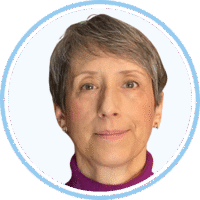
Resources
The Power of Connection: Using NeuroRelational Care to Support Regulation and Growth
Bio
Carole Anne Hapchyn is an infant and early childhood psychiatrist who has provided assessment and treatment for infants, young children, and their families for 35 years in Edmonton, Alberta, Canada. She was the medical lead of Infant Preschool Services at CASA Child, Adolescent, and Family Mental Health, as well as the Autism Clinic at the Glenrose Rehabilitation Hospital. She currently works in private practice and is Co-Director at the ElmTree Clinic. Dr. Hapchyn is passionate about teaching and is a Clinical Professor of Psychiatry at the University of Alberta. Carole Anne is a past president and founding member of the Alberta Association for Infant and Early Childhood Mental Health. She collaborates with agencies, educators, and health and mental health care providers in Canada to incorporate the NeuroRelational Framework into practice in her role as faculty, trainer, and mentor for the NRF.

Resources
Money Toolkit for Autistic Families
Bio
Gina Payne has over 10 years of experience as a licensed financial advisor and has a deep passion for helping individuals and families succeed in achieving their financial goals. Her firsthand experience, training and strong values allow her to appreciate the uniqueness of her client’s life situations. Gina works hard to share financial knowledge and protection, allowing people to make confident decisions and create their own secure and successful financial future.
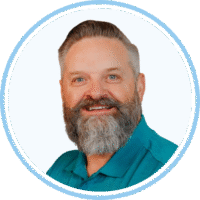
Resources
Money Toolkit for Autistic Families
Bio
Dan Dyck was blessed to begin his financial career at the age of twenty, and he’s been in love with it ever since. Every day, he has the privilege of working alongside a team of caring advisors, helping families find financial peace and confidence in their futures.
When Dan and his wife, Christa, aren’t serving their Solomon family, they’re spending time with their own, keeping up with their kids, who never fail to keep life fun, full, and endlessly entertaining.
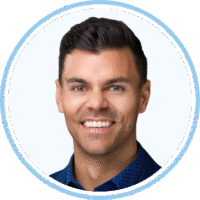
Resources
Money Toolkit for Autistic Families
Bio
When my clients are experiencing the financial wellness that they envisioned, others think it must have been easy, but we know what went into it and they are PROUD of themselves!
I believe in seeing possibility everywhere so if you need a new perspective on an old strategy, or just someone to swap stories with about how we both used to be more athletic, you can reach out to me.
Schedule
7:30am – 9:00am
Breakfast & Registration
9:00am – 10:30am
Opening Remarks & Keynote
CARL HONORÉ – Stillness Under Pressure: The Power of Slow in a Fast World
10:30am – 11:00am
Break
11:00am – 12:00pm
SEIUN THOMAS HENDERSON – The He(art) of the Matter: A Framework for Wellness, Purpose, and Connection in Inclusive and Neurodiversity-Affirming Education
12:00pm – 1:00pm
Lunch Panel
LONNNIE ZWAIGENBAUM, DEEPA SINGAL, & EVDOKIA ANAGNOSTOU
1:00pm – 1:30pm
Break
1:30pm – 3:30pm
TERRI DUNCAN, KELSEY PENNEY, ANNA LOI – Workshop: Regulation Made Real: Classroom Strategies and SMG Tools That Support Students
3:30pm
Closing Remarks, Door Prizes, 50/50 Draw
Speakers' Bios, Sessions Info & Resources
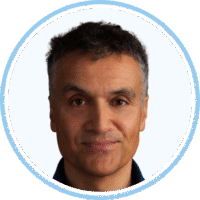
Session Description
To thrive in a fast world, you have to slow down. Doing so will boost your health and bring more depth, pleasure and meaning to your life. It will also make you more creative and productive at work. As the actress Mae West once said: “Anything worth doing is worth doing slowly.” Using stories and research from around the world, Carl shows how to work, play and live better by unleashing your inner tortoise.
Children need the time and space to explore the world on their own terms, to play freely, to rest and reflect, to get bored even. Children need slowness. They also need us, as parents, to slow down.
Drawing on examples from around the world, Carl shows how slowing down can supercharge a school: By building resilience, social skills and emotional intelligence. By boosting analysis, learning and debate. By unleashing a creativity revolution. Carl shares practical steps for slowing down school life and bringing everyone (staff, parents, pupils) along for the ride.
Resources
Bio
Carl Honoré is an award-winning writer, broadcaster and TED speaker. He is originally from Edmonton and is the voice of the Slow Movement. Published in 36 languages, Carl has landed on bestseller lists in many countries. His online videos have more than 10 million views.
After working with street children in Brazil, Carl covered Europe and South America for the Economist, Observer, Miami Herald, Houston Chronicle, National Post (Canada), Time and other publications.
His first book, In Praise of Slow, chronicles the global trend toward putting on the brakes in everything from work to food to parenting. It was a BBC Radio 4 Book of the Week and the inaugural choice for the Huffington Post Book Club. It featured in a British TV sitcom, Argentina’s version of Big Brother and a TV commercial for the Motorola tablet. The Financial Times said it is “to the Slow Movement what Das Kapital is to communism”.
Carl’s second book, Under Pressure explores how to raise and educate children in a fast world and was hailed by Time as a “gospel of the Slow Parenting movement”. It was shortlisted for the Writers’ Trust Award, the top prize for non-fiction in Canada.
Carl’s third book, The Slow Fix, explores how to tackle complex problems in every walk of life, from health and relationships to business and politics, without falling for superficial, short-term quick fixes.
His fourth book, Bolder: How To Age Better And Feel Better About Ageing, is a spirited manifesto against ageism. It was also a BBC Radio 4 Book of the Week as well as a Reader’s Digest (UK) Book of the Month.
Carl first children’s book, It’s The Journey Not the Destination, is an ode to slow travel.
Carl featured in a series for BBC Radio 4 called The Slow Coach in which he helped frazzled, over-scheduled people slow down. His TED Course is How To Slow Down. He also presented a television show called Frantic Family Rescue on Australia’s ABC 1. He recently wrote and presented a series on Status for BBC Radio 4.
Carl lives in London. While researching his first book on slowness he was slapped with a speeding ticket.

Session Description
In this interactive session, participants will explore The He(art) of the Matter framework, a restorative model for cultivating wellness, authenticity, and connection in education. Drawing on insights from mindfulness, reflective practice, Acceptance and Commitment Therapy (ACT), and heart-centered practice, participants will engage with practical strategies to nurture emotional balance, rekindle passion for their work, and strengthen relationships with themselves, their students, and their communities.
Resources
The He(art) of the Matter Reflection Handout
Bio
Seiun Thomas Henderson, MAdEd, is an autism and education specialist with over 35 years of experience advancing inclusive and innovative practices in education. He is the Director of Research and Innovation at Giant Steps in Montreal, where he leads initiatives that bridge research, practice, and community impact. His work focuses on developing neurodiversity- and autism-affirming approaches that empower individuals, families, and organizations. A passionate advocate for transforming educational systems, Seiun works to foster environments grounded in understanding, compassion, and belonging.
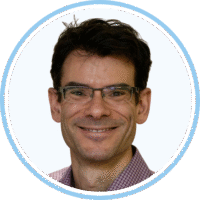
Bio
Lonnie is a developmental pediatrician at the Glenrose Rehabilitation Hospital, where he directs the Autism Research Centre and a Professor in the Department of Pediatrics at the University of Alberta, supported by the Stollery Children’s Hospital Foundation Chair in Autism. He is also the Associate Director and lead for Child Health Research for the Women’s and Children’s Health Research Institute at the University of Alberta. His current research focuses on improving early detection, timely diagnosis and health care related to autism. Lonnie also chaired the Canadian Pediatric Society Task Force that issued practice statements on autism diagnosis and ongoing pediatric care in 2019, and the oversight panel of the Canadian Academy of Health Sciences Autism Assessment requested to guide the development of a national autism strategy.
Resources
Practical Tips for Living Successfully on the Autism Spectrum. Register here:
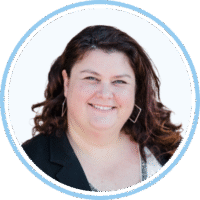
Session Description
Emotional Regulation impacts all learners, and by building a stronger understanding of the factors at play, educators can build a toolbox of strategies to address these factors, think proactively about their approach and support learners to build independence in their regulation development. This session will feature practical approaches to addressing gaps in sensory-motor input and executive functioning. It will also share information about a proactive approach to crisis intervention, Safe Management.
Resources
Regulation Made Real: Classroom Strategies and Tools That Support Students
Bio
Terri is the founder and Executive Director of Children’s Autism Services. She is a speech language pathologist and has worked with Autistic children and a broad range of developmental delays for close to thirty years. Terri has her B.A. in Psychology and Linguistics from the University of Ottawa and her master’s degree in Speech Language Pathology from the University of Alberta. She has presented at numerous conferences, provided professional development training sessions, and taught classes at universities.
Her interest in working with children with neurodiverse populations began when she worked as an aide with a four-year old boy with autism. Since that time, she has been fascinated by the complexity of the brain and the resilience of families dealing with the challenges they face on a daily basis. Terri started Children’s Autism Services in 2004 and since that time, the organization has grown to be the largest service provider in Western Canada.

Session Description
Emotional Regulation impacts all learners, and by building a stronger understanding of the factors at play, educators can build a toolbox of strategies to address these factors, think proactively about their approach and support learners to build independence in their regulation development. This session will feature practical approaches to addressing gaps in sensory-motor input and executive functioning. It will also share information about a proactive approach to crisis intervention, Safe Management.
Bio
Kelsey has been working with Children’s Autism Services for twelve years and is passionate about the way this organization innovates and works with the community it supports. Kelsey has a Bachelor of Education and a Masters in Educational Leadership and Management. Kelsey works with school teams and community members to learn about using an Emotional Regulation Approach in Alberta, and now in British Columbia as a Program Director.

Session Description
Emotional Regulation impacts all learners, and by building a stronger understanding of the factors at play, educators can build a toolbox of strategies to address these factors, think proactively about their approach and support learners to build independence in their regulation development. This session will feature practical approaches to addressing gaps in sensory-motor input and executive functioning. It will also share information about a proactive approach to crisis intervention, Safe Management.
Bio
Anna has been working with Children’s Autism Services for 13 years and has a Masters in Applied Disability Studies and is a Board Certified Behaviour Analyst. She has moved through different roles within the organization and currently she is the Quality and Development Manager where she supports with program development, evaluation and training. She is also one of the Safe Management Group (SMG) Trainers, and coordinates and offers SMG training to other organizations and school boards in the Alberta and North West Territory region. She is passionate about teaching and supporting emotional regulation and promoting safety to community members.
Sinneave Family Foundation
Click here to find out more about the Sinneave Family Foundation programs and services.



